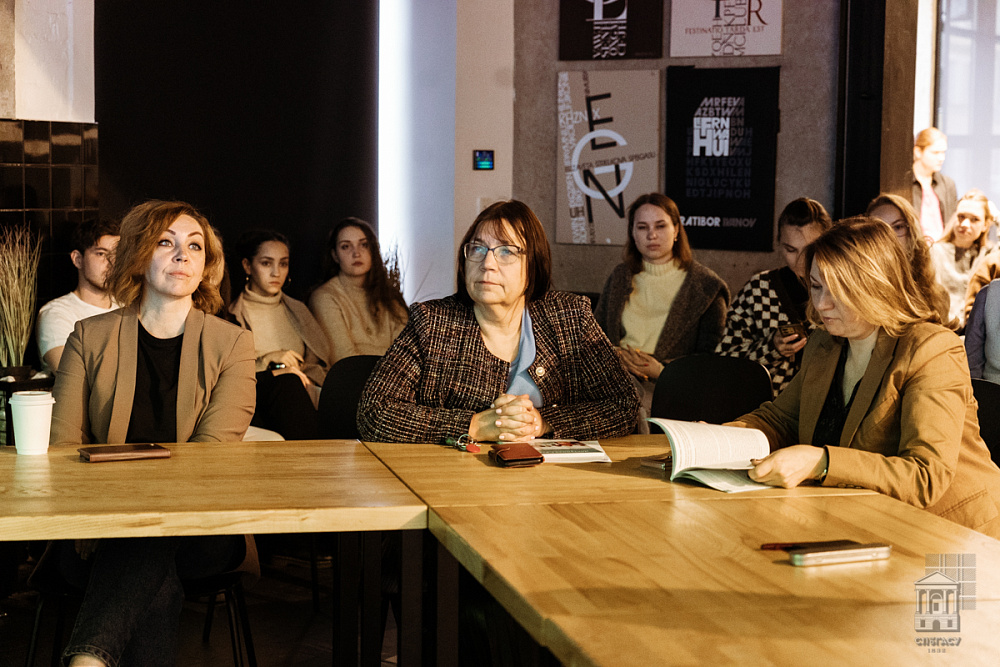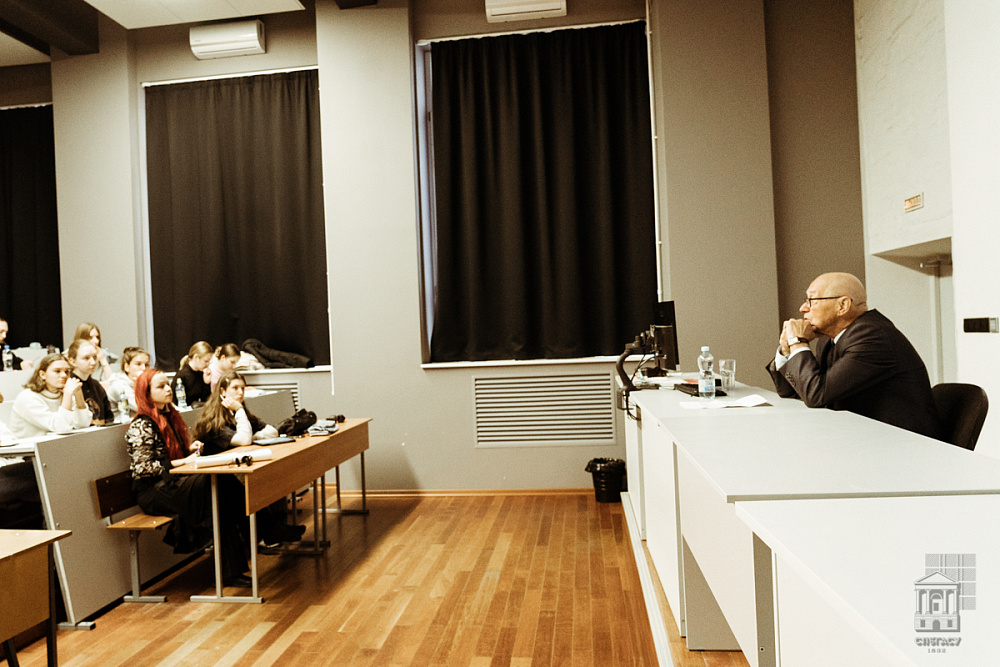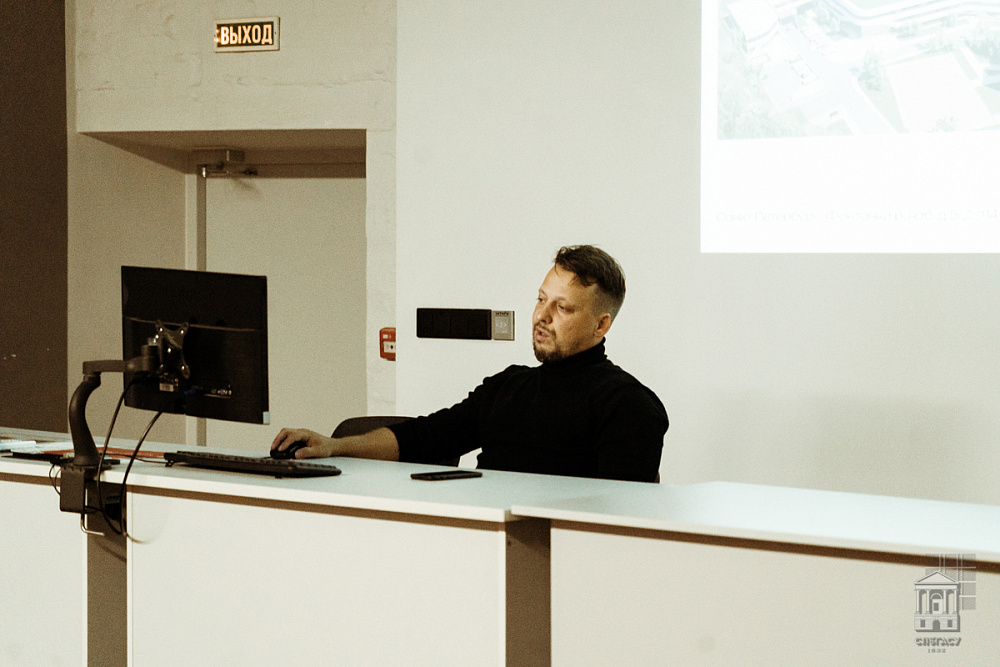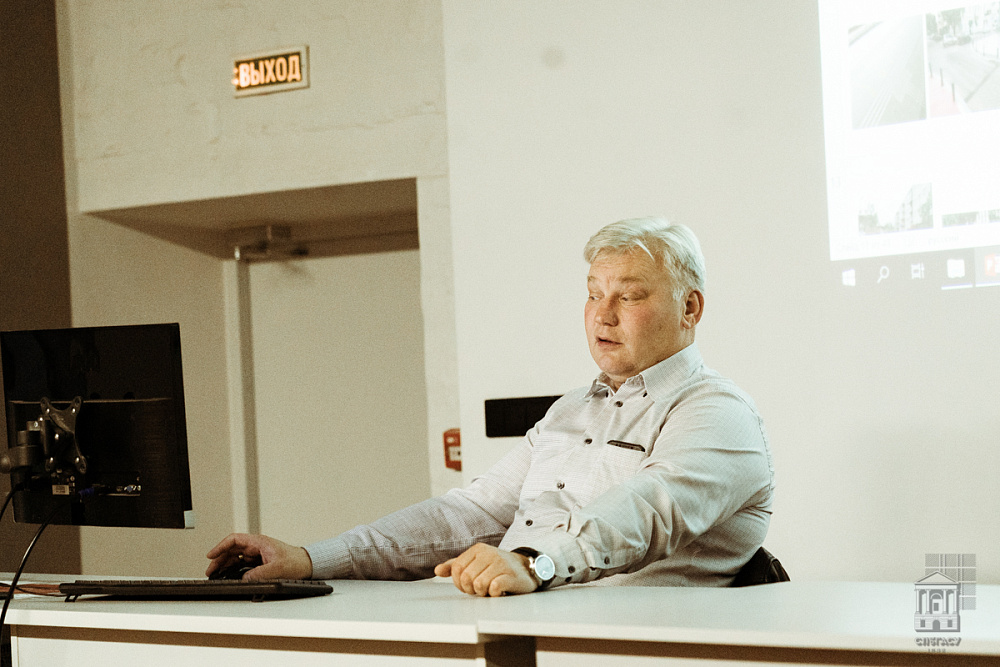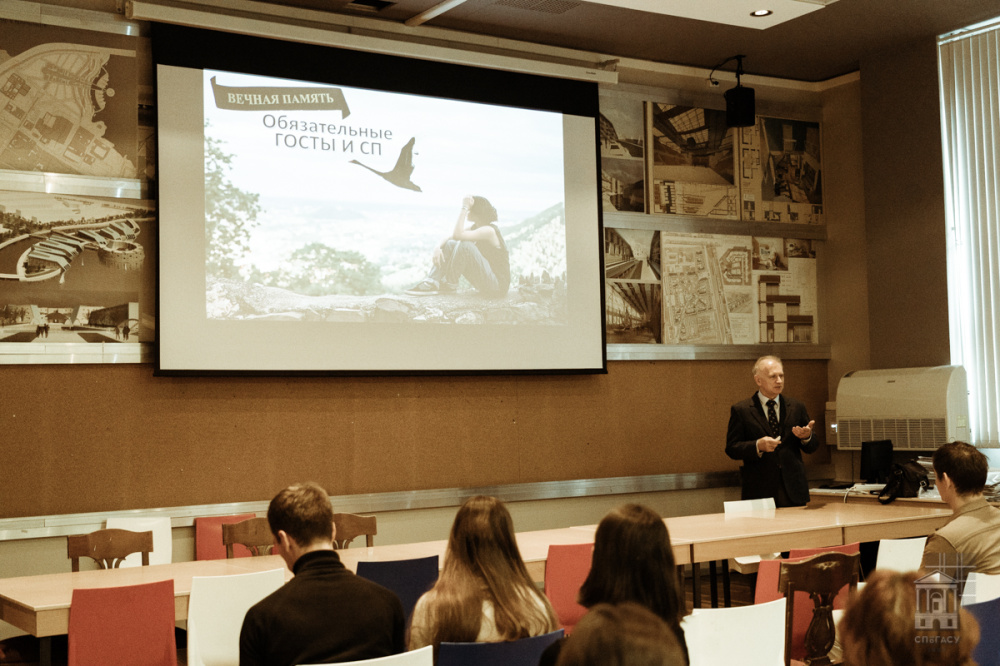 Sergey Chisty
Sergey Chisty
From 30 September to 4 October, SPbGASU hosted the Week of Barrier-Free Environment. The program included lectures by experts and other events aimed at developing students' professional competencies.
Sergey Chisty, Chairman of the Board of the Charity foundation "City Is For All", gave a lecture on 1 October, "Reasonable adaptation as a tool for designing a barrier-free environment". According to Sergey Vladimirovich, regulatory documentation is constantly "catching up" with life. There are more and more codes of rules, which slows down business and creativity. Therefore, there is now a transition from directive regulation to more effective parametric regulation.
The lecture by Sergey Sokhranskiy, editor-in-chief of the magazine "Accessible Environment" and a member of the author's teams for the development of a number of codes of practice, took place on 2 October and began with a short interactive session. As he was climbing the podium, Sergey Serafimovich tripped over a ledge in the floor and exclaimed: "This is also a barrier!" In this way, he clearly demonstrated that the issues of creating a barrier-free environment concern everyone and are relevant in all spheres of life. During the lecture, Sergey Sokhranskiy drew the attention of the audience to the problems that arise in the course of developing regulatory documents for the creation of a barrier-free environment.
Kirill Morozov, head of the KMK Landscape Workshop, discussed with students on 3 October what means can be used to achieve barrier-free and convenient conditions for everyone. In particular, what width should doorways and open openings in the wall of a building be, how parking lots should be arranged, what tactile surfaces exist, etc. Dmitry Potaralov, head of a personal architectural workshop, shared information about his projects, including those related to solving inclusive problems, during a lecture on 4 October.
The final event of the week was a discussion of the projects of SPbGASU student teams, which were presented at the All-Russian competition of student works in the field of universal design and design of barrier-free urban environments for people with limited mobility. The final of the competition was held in Moscow on 15–17 May.
As Oleg Fedorov, leading specialist of the SPbGASU Educational Center of Project-Based Learning, explained, our university planned to send eight projects to the competition. However, the organizers limited the number of works from one university. The university competition committee selected four projects, and three works made it to the final. All of them won awards, including the Grand Prix.
"We decided to hold this informal meeting so that all the guys could get feedback. Including those who did not get into the competition and did not make it to the finals. The second reason was the desire to introduce other students to these wonderful competition projects," said Oleg Fyodorov.
The contestants focused on the urban environment of Azov in the Rostov Region. They had to create four boards: the first was dedicated to the conceptual development of the city, the second presented the results of a comprehensive analysis of one of its sections, the third was to formulate proposals for the improvement of the selected section, and the fourth was to consider a separate building, proposing a reconstruction option for an existing facility or new construction.
The team consisting of Sofia Malysheva (captain), Maksim Shemetillo, Dmitry Erofeev, Daniil Medvedev and Yulia Makhneva failed to take part in the competition. However, the students developed solutions worthy of prizes. Among them are an inclusive playground and a pavilion for canister therapy (a type of therapy with animals, when specially selected and trained dogs are used for rehabilitation and treatment). The students emphasized that the equipment they chose was from catalogs, it can be easily ordered and purchased. The team was led by Oleg Fyodorov and Elena Bobrova, senior lecturer at the Department of Urban Planning.
The multifunctional bench designed by the LINKK team consisting of Inga Khafizova (captain), Elizaveta Abdullina, Anastasia Fedorova, Ksenia Saifullina and Kristina Nosovaya cannot be found in any catalog yet. This bench can be made with armrests, with a backrest or without a backrest. It has built-in trash containers, it can be placed both in the center and along the road. It can be used for flowerbed arrangement classes. And it has an unlimited length.
According to the competition committee of our university, the LINKK team did not make it to the final only because the students did not limit themselves and complicated the task by choosing several areas at once. And all these areas were developed in detail. The team's work was supervised by Oleg Fedorov, Aleksey Perov, senior lecturer at the Department of Architectural Environment Design, and Alesia Boyko, assistant at this department.
The team consisting of Daria Krasnova (captain), Arina Bezzubenkova, Anastasia Glukhova, Polina Fait and Ekaterina Kholshchigina, under the supervision of Oleg Fedorov, spoke about their competition project at the meeting. The competitors focused on the area next to the city hospital and proposed adding landscaping, new driveways, parking spaces and pedestrian paths.
The winners of the competition also presented their projects: the Delta team, which included Varvara Dericheva (captain), Alina Lagkueva, Angelina Savitskaya and Mikhail Rakhimov, and the Faces of the City team, consisting of captain Alisa Mikhailova, Sofia Nikolaeva and Vladislava Savelyeva.




